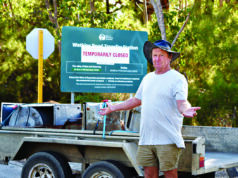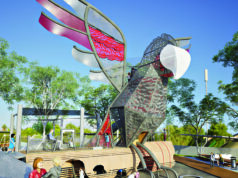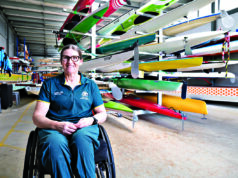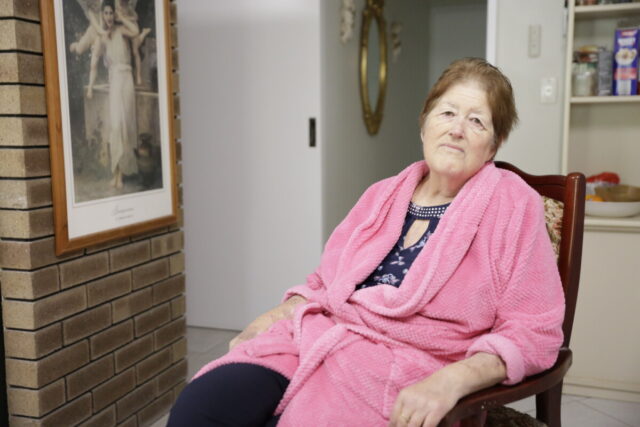
Kristine White is lucky to be alive.
In March, she went under the knife at Fiona Stanley to receive an urgent heart bypass after doctors at the Royal Perth Hospital discovered a triple blockage.
Despite being told she died on the table twice, the surgery ultimately was a success, and her strong will and positive attitude has helped her recover from it.
She feels relief that she got the health care she so urgently needed, and is here to tell the tale.
But she can’t quite rid herself of the anger she also feels towards the Armadale Hospital.
Kriss is no stranger to the Armadale Hospital – she’s been a regular dialysis patient there for over a decade since her inherited polycystic kidney disease took a turn for the worse in 2009.
“I get blood thinners while on the dialysis machine – it’s well-known that renal patients have an increased risk for heart complications,” she said.
In fact, current research shows almost half of all people with chronic kidney diseases, like Kriss’, will die from cardiovascular disease. It’s the most common cause of death for renal patients in Australia.
“But I don’t think the doctors at Armadale were taking my kidney disease into consideration when I was having my heart concerns,” she said.
Over the course of three months from November last year, Kriss presented to the Emergency Department at Armadale on three separate occasions with severe chest pains – an entirely new physical complaint for her.
“Each time I was given a blood test, told it was negative, and that I could go home,” she said.
“One time I had a huge attack right there in the ED. The pain was pounding me – on a scale of 1 to 10 it was 1000, and I told them that. But they still sent me home.
“I thought, ‘if I’m having an attack while I’m in hospital, surely they’ll do something’. But they didn’t.
“I was terrified, because I’d gone there for help and they’d sent me home with the same problem. I thought, ‘where else do I go for help?’”
Kriss said she asked multiple times for other tests and to be referred to a hospital with a dedicated cardiology department, but was refused.
Thankfully Kriss’ decades of experience navigating the hospital system and her medical conditions has given her the chutzpah needed to properly advocate for herself. If Kriss wasn’t the type to trust her gut instinct, she’d likely be dead right now.
“I take no prisoners,” she said. “And I refused to listen – not when my life is on the line.”
After getting nowhere at the Armadale Hospital, she booked in with her GP to organise a referral to the Royal Perth cardiology clinic.
In early February, after a consultation with a cardio doctor at the RPH, Kriss was listed as a “high priority patient” and fast-tracked for an angiogram.
“The difference in care and concern was shocking,” she said.
“She was happy to jump me through the queue to get me that angiogram ASAP.”
It turns out the concern was more than warranted. The angiogram found the “triple vessel” blockage and Kriss was diagnosed with “severe LAD disease”.
She was immediately booked in for a coronary artery bypass graft (CABG) at Fiona Stanley.
“They told me: ‘we’re not sending you home – if we do that, you’re going to die’,” she said.

“I was petrified – I wanted to see tomorrow. I just kept thinking, once I’m in the theatre I’ll be safe.”
Mercifully, Kriss did live to see another day, and give her grandkids a big hug.
“I’m so happy I’ve got a beautiful family who support me,” she said.
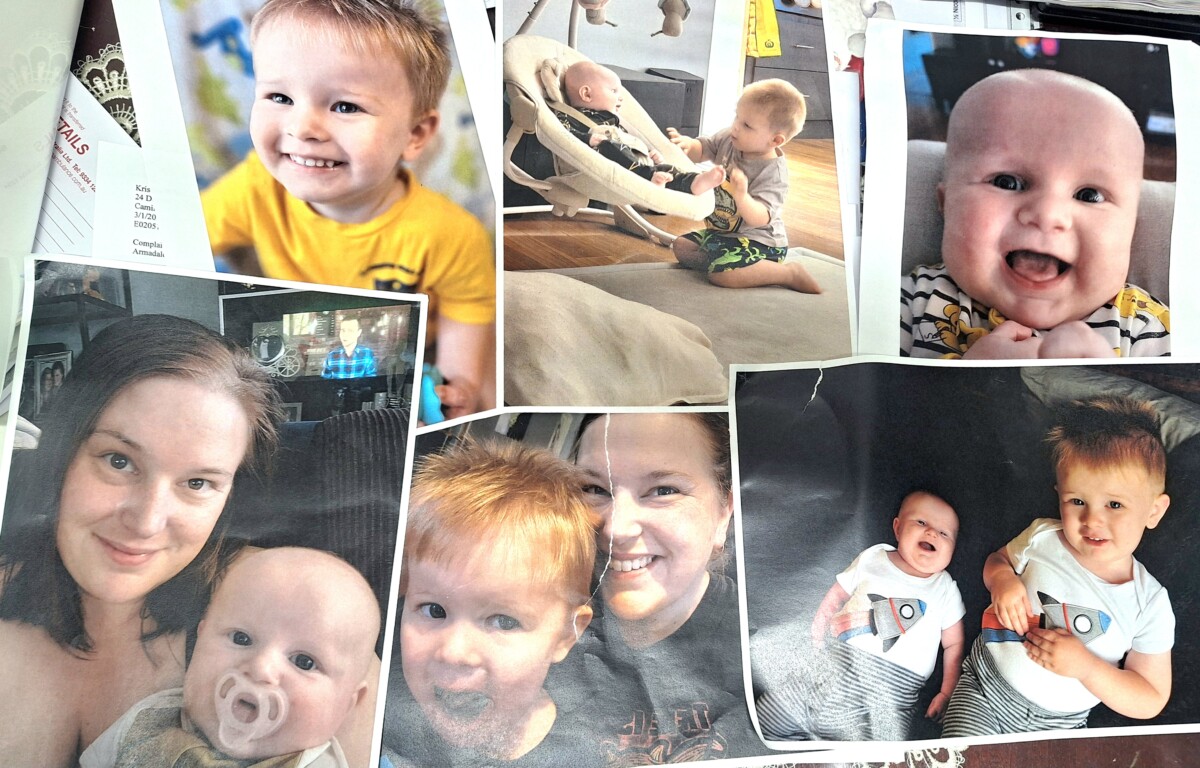
But during her long recovery, her relief at surviving was superseded by rage.
“I’m pissed off,” she said.
“How can a hospital totally miss high priority signs that would have been life threatening?”
Blood tests which detect the protein troponin are the gold standard diagnostic tool for cardiac injury.
But there are rare documented cases of false negatives caused by a variety of factors.
One 2023 study in the Journal of Laboratory and Precision Medicine explains troponin levels in patients with chronic kidney disease often behave differently to the general population, and it is recommended that testing is done over a much longer time frame to more accurately measure rises and falls of troponin in the system.
The blood thinner, heparin, has also been found to cause “lower measured troponin plasma concentration”.
And then there’s the question of why Kriss was refused a referral to another hospital for further investigation, despite being a known renal patient with all the associated coronary risks that brings.
A damning 2018 study by the University of Sydney of 41 Australian hospitals found that women were routinely underdiagnosed and undertreated for heart attacks and died at twice the rate of men six months after discharge.
“We need to do more research to discover why women suffering serious heart attacks are being under-investigated by health services and urgently identify ways to redress the disparity in treatment and health outcomes,” cardiologist and Uni of Sydney Professor Clara Chow said.
Kriss said a formal complaint to the Armadale Hospital was met with a ‘reimagining’ of events.
“We have reviewed your previous visits to our Emergency Department and determined that as you were already under a comprehensive management plan with your GP, including being referred for investigative procedures, it was therefore appropriate not to transfer you to another hospital for testing,” East Metropolitan Health Service Executive Director Neil Cowan wrote in response to her complaint.
But Kriss is adamant that no ‘management plan’ or referral for ‘investigative procedures’ existed until after she was turned away by the hospital for the third time.
We asked the hospital for clarification and were told by a spokesperson that “due to patient confidentiality, public comment will not be made on individual cases”.
Kriss has since been wondering how many others have also been sent home with chest pains from Armadale Hospital who are no longer here to tell their story.
“I’ve heard stories from other people about family members being sent home to die,” Kriss said.
The Examiner has been made aware of at least one other case in the past three years where a patient with a history of heart problems has been sent home with chest pains only to pass away months later due to cardiac arrest.
“I believe this is ongoing, and I’d like a full investigation done on Armadale Hospital,” Kriss said.
A hospital spokesperson said “patients are always encouraged to seek assistance from the department co-ordinator so resolution can be supported, and/or the Consumer Liaison Office on (08) 9391 1153 or AKG_ConsumerLiaison@health.wa.gov.au”.



